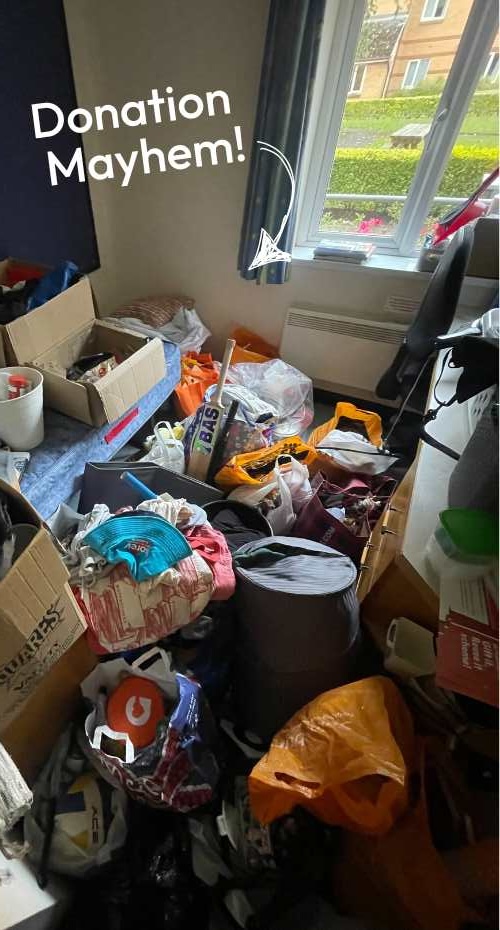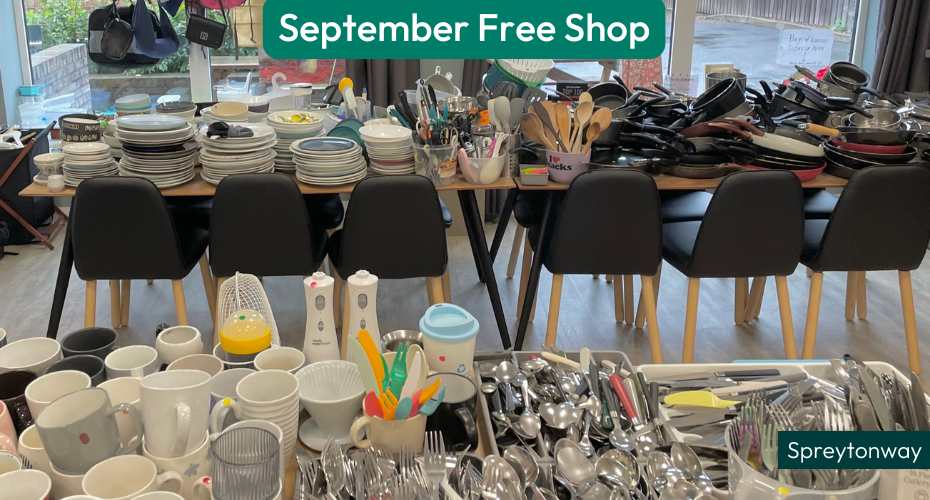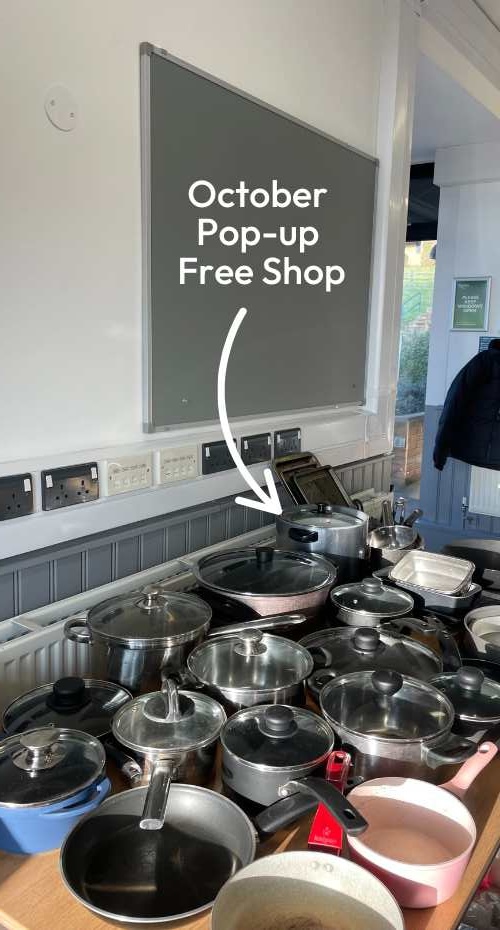By Meg Haslam

Ever wondered what it looks like behind the scenes of the Gift It Reuse It scheme? What made up the majority of the donations? How many items we had to sort through? How the scheme has evolved since last year? Read on to find out more!
Gift It Reuse It (GiRi) is a scheme which aims to reduce waste generated by students by giving them designated places to donate things which other students can then take for free. It supports the University of Exeter’s Strategy 2030, as well as the new Circular Economy and Sustainable Resource Management Strategy 2024 – 2030. The idea for the scheme has been in the running for several years, and it finally came to fruition last year thanks to the work of Nigel Morris (Sustainability Manager Circular Economy) and Sabra Gardner (Contracts and Residences Experience Manager).

The scheme started in the summer of 2024 with what I like to call ‘The Big Collection’. When the scheme started, it was focused on students leaving on-campus accommodation at the end of the academic year. It aimed to combat unnecessary waste generation by giving them the opportunity to donate their unwanted household items at various designated points in UPP & UoE residences. These donated items were then sorted and cleaned (by me, the Sustainable Living Assistant and Hebe Dennison, the Circular Economy Intern) and PAT tested (by an electrician, not us!). The University’s porters helped us to move stuff between donation points and transported a number of items to Holland Hall for dishwashing (dirty crockery was unfortunately quite common!). Sabra and Hebe then spent two days down in Holland Hall’s catered kitchens dishwashing items ready for reuse. Once the items had been sorted and cleaned, they were arranged into 5 Free Shops across Streatham campus, for new students to make use of come September. (To see what the shops looked like, check out this video).

This pilot of the scheme prevented 8554 items (1623g) from entering waste streams (and consequently an equivalent of 18015 kg in CO2 emissions). From these items, the most donated categories were utensils (2,463) and hangers (1,407), but items ranged from a pizza maker and typewriter to an inflatable Santa Claus! We received much positive feedback from both students and parents who were really grateful for the resource and the free essential items the shops provided. Many families who had travelled from far away, unable to bring many items with them, were relieved that an expensive trip to IKEA was no longer needed thanks to GiR!
Approximately 8000 of the 8554 items donated were claimed by new students in halls in September. Once Welcome Week had come to an end, the remaining items were taken to the semi-permanent shop site in Clydesdale House. Another two Free Shops were opened in October and November 2024 to offer the remaining donated items to all students at the University. Over the Christmas holidays, donations were accepted again in halls of residence from students moving out. Another Free Shop was opened in the new year in Clydesdale made up of donated items, unclaimed lost property and unused Guild society stock.

The pop-up shops that have run since September 2024 have been extremely popular amongst students, with few items remaining at the end. These shops would not have been possible had it not been for the help of student volunteers – most namely Tabitha Percy and Alina Hamova – who gave up their time to support me in running the shops during term time. Emily Pink – our Sustainable Engagement Intern – has also been invaluable in supporting the Free Shops and promoting them on social media.

The first iteration of Gift It Reuse It has been a resounding success and has seen thousands of items that may have ended up in waste streams put to good use by students. It has helped to promote circular economy thinking amongst students and proved that such a scheme is needed both by students moving out and those moving in. Long may it continue!
